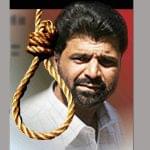More on Indian Minorities
Bombay High Court: No person in India can be compelled to declare his religion

Mumbai:
The Bombay high court has ruled that no person In India can be compelled to declare his religion. Hearing a PIL seeking direction to the Maharashtra government to not insist on declaration of religion on official forms and documents, the high court passed the order.
The petition was filed by Dr Ranjeet Mohite, Kishore Nazare and Subhash Ranaware, who claimed to be members of Full Gospel Church of God, which they said had more than 4,000 members and though they believe in Jesus Christ, they do not believe in Christianity.
The petitioners had approached the state printing press, seeking to issue a gazette notification that said that they were not Christians and belonged to “no religion”. The state had rejected their application forcing them to file a PIL in the HC.
A division bench of Justices Abhay Oka and A S Chandurkar directed the Union and state governments “not to compel any individual to declare or specify his religion in any form or any declaration”.
The court has observed that “every individual had the right to claim that he does not belong to any religion and that he did not practice or profess any religion”.
The Centre and the Maharashtra government had opposed the petition, saying no reliefs could be granted. They claimed that “no religion” in official forms cannot be treated as a religion or as a form of religion.
The HC reminded the governments that India is a secular, democratic republic with no state religion. The court held that no state authority could infringe upon a persons fundamental right under the Constitution of India (Article 25) of freedom of conscience and freely practicing, professing or propagating a religion.
“There is complete freedom for every individual to decide if he wants to adopt or profess any religion or not. He may not believe in any religion. If he is professing a particular religion, he can give up the religion and claim that he does not belong to any religion. There is no law which compels a citizen or any individual to have a religion. The right of freedom of conscience conferred on a citizen includes a right to openly say that he does not believe in any religion and, therefore, he does not want to practice, profess or propagate any religion. If the parents of a citizen practice any particular religion, he has a freedom of conscience to say that he will not practice any religion,” the judges said.
The HC said that if an individual is told by the state to disclose his religion, he can say that he does not practice or belong to any religion.
